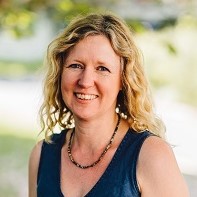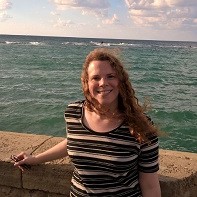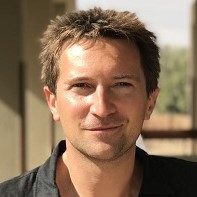Stories of Objects
Stories of Objects
**This module is not available in 2024/25**
Objects tell many stories. Stories about their creation, function, style, significance, and manipulation. Throughout an object’s life and, in some cases, afterlife, its stories are underwritten by social, political, economic, and religious factors. The stories of objects therefore reflect upon and interact with the communities who craft them, both in antiquity and in more recent history.
This module will train you in the close analysis of different types of objects from the ancient world, with the aim of being able to recognise and assess how different communities have engaged with objects in different contexts. You will develop the ability to think critically about how and why the stories told by and about objects change throughout their lives and afterlives.
Who is this module open to?
Pre-requisites: An A-Level in Ancient History, Classical Civilisation or equivalent. Alternatively you might have some study of ancient world at higher secondary level or undergraduate level, or other relevant experience (e.g. volunteering on archaeological excavations, museums etc.). Classics and Ancient History undergraduates are automatically eligible. Applicants without this are welcome to contact the department to discuss: classics@warwick.ac.ukLink opens in a new window.
Credit bearing:
Open to all first year students at Warwick
- CX274-15 - taken in first year for credit to intermediate year
Key dates
This module is not available in 2024/25.
Costs
Field trips - Return travel to London for site visit to British Museum (dependent on national restrictions), cost is approximate £50.
Location
This module will be taught at the Warwick campus, Coventry.
What's special about our modules?
This programme will challenge your thinking, develop your confidence and open up a world of new opportunities. You’ll consider new ideas, apply theory to real world issues working in teams and individually, and develop new networks, connections and friendships. This will provide you strong analytical and research methods skills which also enhance your employability profile for a globalised world of work, derived from a transformative blend of online learning and intercultural engagement.
Access to Intercultural Training will provide further enhancement of your skills.
The intensive nature of our programme lets you focus purely on your chosen modules.
You should expect around two weeks of daily face-to-face sessions (on location) and possibly one week of preparatory online activities. The aim is to work in groups consisting of incoming students (from partner institutions) and Warwick students during the module. Assessments will consist of a mix of group and individual activities.
There are no additional programme fees for Warwick students to take our modules.
Where will you be taught?
Our intensive modules are taught in various ways: mostly face-to-face (combing some online learning and face-to-face teaching). Modules will be based at Warwick central campus, or our overseas residentials will be based at selected European locations relevant to module content. Our modules are designed to be taught in an intensive way, combining physical teaching, and online activities.
All participants will be expected to attend all lectures and group work activities in real time; this might include some online activities in the prep week (where listed in Key dates). As modules are intensive there is not expected to be free time during the teaching period for you to undertake other activities; there will be limited time available during the teaching period to explore the surrounding area.
Students are responsible for checking their own visa requirements and all associated applications and costs.
For overseas modules students are responsible for identifying and booking their own accommodation.
Professor Zahra Newby (Module Leader)
Professor Newby's research interests lie in art of the Roman empire in its widest cultural contexts, including art in the provinces of the Greek east, the Roman response to Greek culture, ancient funerary art, ancient athletics, festival culture and the relationships between art and text.

Dr Eris Williams Reed
Dr Williams Reed's research centres on the history, culture and society of the Roman Mediterranean and beyond, including how ancient communities interacted with their local environments, religious traditions and practices in the eastern provinces, and cultural attitudes in and towards the 'edges' of the Roman empire.

Professor Michael Scott
Professor Scott's research focuses on the intersection of ancient history and archaeology within the Mediterranean and more widely across the ancient world, including the interrelationships between art and text, the changing perception and experience of sacred space, the political uses of architecture, the impact and use of epigraphic documents as both text and monument and the reception of the ancient world in the modern.

Prof. Zahra Newby: Myths and Funerary Art
Prof. Michael Scott: Viewing Images at the Greek Symposium
Dr Clare Rowan: The Age of Augustus on Coins
Student blog
Visit the blog of one student's experience on the module here
Module aims
Through a series of thematic lectures, students will examine a selection of ancient objects and evaluate what the stories arising from them tell us about each object’s purpose in both antiquity and more recent history. Tutorials will provide students with the skills needed, firstly, to assess critically the stories told about ancient objects in the modern world and, secondly, to communicate these stories to different types of audiences. A museum visit will give students the opportunity to analyse how a specific cultural institution uses particular objects to tell stories about antiquity.
Outline syllabus
This is an indicative module outline only to give an indication of the sort of topics that may be covered. Actual sessions held may differ. Please note, the thematic topics are subject to change and are broadly indicative of the module content.
Week 1:
Students will watch the following 1 hour asynchronous lectures on each thematic topic and complete the associated 1 hour follow-up exercises:
- Lecture 1: Power
- Lecture 2: Myth
- Lecture 3: Daily Life
- Lecture 4: Gender and the body
Students will attend the following synchronous sessions:
- Group introductions and module overview (1 hour)
Students will complete the following asynchronous activities:
- Working asynchronously as a group, students will prepare a presentation on an object that relates to one of themes; the presentation will be delivered in week 2.
Week 2:
Students will attend the following synchronous seminars:
- Introduction: Why do object matters? (1 hour)
- Power & Daily life (1.5 hours)
- Myth & gender and the body (1.5 hours)
- Telling stories through museum exhibitions (1 hour)
- Writing creatively about objects (1 hour)
- Museum visit preparation (1.5 hours)
- British Museum visit (5 hours) dependent on current safety measures issued by the UK government
Students will attend the following synchronous project supervisions:
- Blog post preparation (0.5 hour)
Week 3:
Students will complete the following synchronous activities:
- Warwick Museum visit (4 hours) dependent on current safety measures issued by the UK government
- Communicating to a non-specialist audience (2 hours)
- Museum visit discussion (1.5 hours)
- Portfolio presentations (3 hours)
Learning outcomes
By the end of the module, students should be able to:
- Have enhanced their research, writing and communication skills
- Have developed skills in the close analysis of a range of ancient objects
- Gained an understanding of how objects can be used in the modern world to communicate different stories about antiquity
- Gained an awareness of some of the methods used by museums to tell stories through ancient objects
- Thought critically about how different communities have engaged with objects in different contexts and the potential impact of social, political, economic, and religious factors on such engagement
- Developed an ability to identify appropriate material and communicate key ideas arising from it to different types of audiences
- Expanded their knowledge of some of the stories told by and about ancient objects, both in antiquity and the modern world.
Indicative reading list
- Approaching the Ancient Artifact: Representation, Narrative, and Function / Amalia Avramidou, Denise Demetriou. (Berlin ; Boston : De Gruyter, 2014)
- Blogging for dummies / Amy Lupold Bair and Susannah Gardner. (Hoboken, NJ : Wiley, 2014)
- The Museum Is Open: Towards a Transnational History of Museums 1750-1940 / Andrea Meyer, Benedicte Savoy. (Berlin ; Boston : De Gruyter, 2013)
- A companion to the archaeology of religion in the ancient world / edited by Rubina Raja and Jörg Rüpke. (John Wiley & Sons Inc., 2015)
- Classics for all : reworking antiquity in mass culture / edited by Dunstan Lowe and Kim Shahabudin. (Newcastle : Cambridge Scholars Publishing, 2009.)
- Cultural borrowings and ethnic appropriations in antiquity / Erich S. Gruen (ed.). (Stuttgart : Franz Steiner, 2005.)
- Beyond Egyptomania : Objects, Style and Agency / Miguel John Versluys (De Gruyter, | 2020)
Interdisciplinary
The module is designed to provide the students with an understanding of relationships between the different disciplinary areas within Classics and Ancient History, particularly Archaeology, Numismatics, Visual and Material Culture, and Museum Studies. It also invites to the students to make connections with other disciplinary areas covered in their main study programme. It provides the students with a critical understanding of dominant traditions and methodologies associated with the main phenomena covered in the module and enables the students to transcend disciplinary boundaries. The interdisciplinary course cohort provides contact opportunities and learning to see from different perspectives is a core aspect of the learning experience.
International
The module draws on cases from different contexts, including different geopolitical areas, professional environments and linguistic contexts. The content and assessment invite the students to reflect on the societal relevance in different environments of the phenomena covered in the module. The assessment involves students working in groups with academic and non-academic stakeholders, and a global and local outlook will be built into the module’s work. The international and diverse course cohort provides contact opportunities and learning to see from different perspectives is a core aspect of the learning experience.
Subject specific skills
By the end of the module students should be able to show skills of visual analysis by:
- Describing and interpreting the composition, style and iconography of a range of ancient objects, using appropriate terminology
- Identifying relevant information pertaining to a range of ancient objects, including material, date, find spot
- Evaluating the methods used to present ancient objects in museums.
They will also be able to show the following intellectual skills:
- Critical awareness of the advantages and limitations of visual material in the study of the ancient world
- The ability to evaluate the merits of different methodological approaches to the material
- The ability to select and present material clearly and with a coherent argument both verbally and in writing
- The ability to set their findings into a wider comparative context, drawing in other aspects of the study of the ancient world
- The ability to seek out appropriate secondary literature and show discernment in the types of primary evidence addressed.
They will also be able to show the following interdisciplinary skills:
- An understanding of relationships between the different disciplinary areas within Classics and Ancient History
- The ability to make connections with other disciplinary areas covered in their main study programme
- A critical awareness of dominant traditions and methodologies associated with the study of ancient objects
- An appreciation of different perspectives, as a result of interacting with an interdisciplinary and international cohort.
Transferable skills
- critical thinking
- problem solving
- active lifelong learning
- communicating clearly and effectively both in discussions and in writing
- information literacy, including finding, evaluating and using previous research
- professionalism
- working effectively with others in groups and tasks
- project and time management
- using a range of tools and resources effectively in the preparation of course work
- developing strong analytical skills by using appropriate methods to analyse research data.
Study time
| Type | Required | Optional |
| Lectures |
7 sessions of 1 hour (4.5%) | |
| Seminars | 9 sessions of 1 hour (6%) | |
| Tutorials | 1 session of 0.5 hour (1%) | |
|
Practical class |
1 session of 3 hour (2%) | |
| External visits | 1 session of 4 hours (2.5%) | 1 session of 5 hours |
| Online learning (independent) | 1 session of 1 hour (1%) | |
| Private study |
125.5 hours (83%)
|
|
| Total | 150 hours |
Assessment
You must pass all assessment components to pass the module:
| Weighting | |
| Blog Post | 40% |
|
Blog post in which the student will outline the ancient and modern stories of a specific object. The blog post will be aimed at KS5 school students and will become part of an online resource hosted by the Warwick Classics Network. |
|
| Exhibition Portfolio | 60% |
|
Exhibition portfolio in which the student will propose how they would use five ancient objects to tell a particular story about an aspect of life in the ancient world. The portfolio will comprise three components:
|
Feedback on assessment
- Blog post: non-assessed student presentation
- Exhibition portfolio: non-assessed student presentation
Before you apply
You can take a maximum of two WIISP modules, and cannot take them at the same time.
Please note
- Warwick students will need to check with their department before applying to take a WIISP module
- Students from partner institutions will need to apply via their home institution
- You are expected to fully engage and participate in the module, including in any group activities, if not your registration will be cancelled
- Module details provided on these pages are supplementary to module details in the module catalogueLink opens in a new windowLink opens in a new window. Subsequently individual module pages (moodle/my.wbs) will provide live details
- All modules require minimum numbers to run. This is set by each module leader.
How to apply
If you want to make an enquiry before applying, please contact the WIISP team at WIISP at warwick dot ac dot uk
